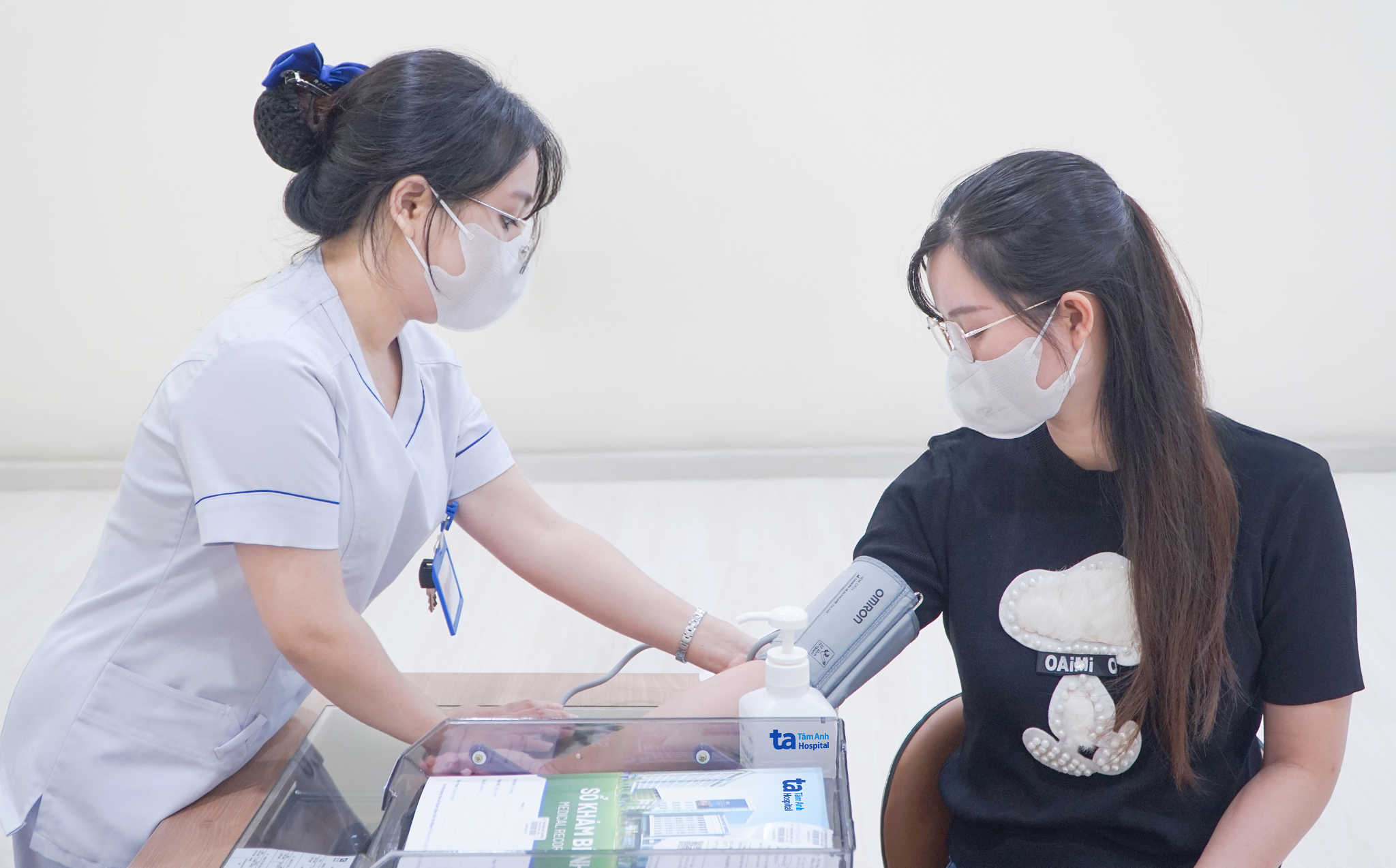Dr. Huynh Thanh Kieu, Head of Cardiology 1 at Tam Anh General Hospital's Cardiovascular Center in Ho Chi Minh City, emphasizes the importance of proper medication adherence and lifestyle changes for managing hypertension. Hypertension often develops silently, but can lead to serious complications like stroke, heart attack, arrhythmia, and heart failure. Treatment requires a personalized, long-term approach, making it essential for patients to follow their doctor's instructions.
A blood pressure reading of 140/90 mmHg or higher is considered high. If you have such a reading, consult a doctor for a health evaluation and a long-term treatment plan.
 |
Blood pressure measured at the clinic from 140/90 mmHg is considered hypertension. Photo: *Tam Anh Hospital* |
All blood pressure medications aim to control blood pressure within a normal range and reduce the risk of cardiovascular events. Here's how different drug classes work:
| Drug Class | Mechanism of Action |
| ACE inhibitors | Relax blood vessels by blocking the formation of angiotensin II |
| Angiotensin II receptor blockers (ARBs) | Block the action of angiotensin II to relax blood vessels |
| Beta blockers | Reduce heart rate and the force of heart contractions |
| Calcium channel blockers | Prevent calcium from entering heart and blood vessel cells, causing them to relax |
| Diuretics | Help the kidneys remove sodium and water, reducing blood volume |
Dr. Kieu offers the following advice for maximizing the effectiveness of blood pressure medication:
Follow your doctor's instructions precisely. Adherence to a personalized treatment plan is essential. Take your medication exactly as prescribed, without changing the dosage or stopping without consulting your doctor.
Take your medication at the same time each day. This establishes a routine and reduces the risk of missed doses, ensuring consistent blood pressure control.
Monitor for side effects. Some blood pressure medications can cause side effects such as headache, dizziness, constipation, fatigue, or rash. Report any unusual symptoms to your doctor immediately.
Be mindful of drug interactions. Certain foods, beverages, and other medications can interact with blood pressure medication, reducing its effectiveness or increasing side effects. Inform your doctor about all supplements, vitamins, and medications you are taking, both prescription and over-the-counter.
Adopt a healthy lifestyle. In addition to medication, lifestyle modifications are crucial for managing hypertension. This includes a healthy diet, regular exercise, maintaining a healthy weight, quitting smoking, limiting alcohol consumption, and avoiding stimulants like caffeine.
Attend follow-up appointments. Regular check-ups allow your doctor to assess treatment effectiveness and adjust medication if necessary. Provide your doctor with complete information about your health, any new symptoms, and your home blood pressure readings.
Thu Ha












